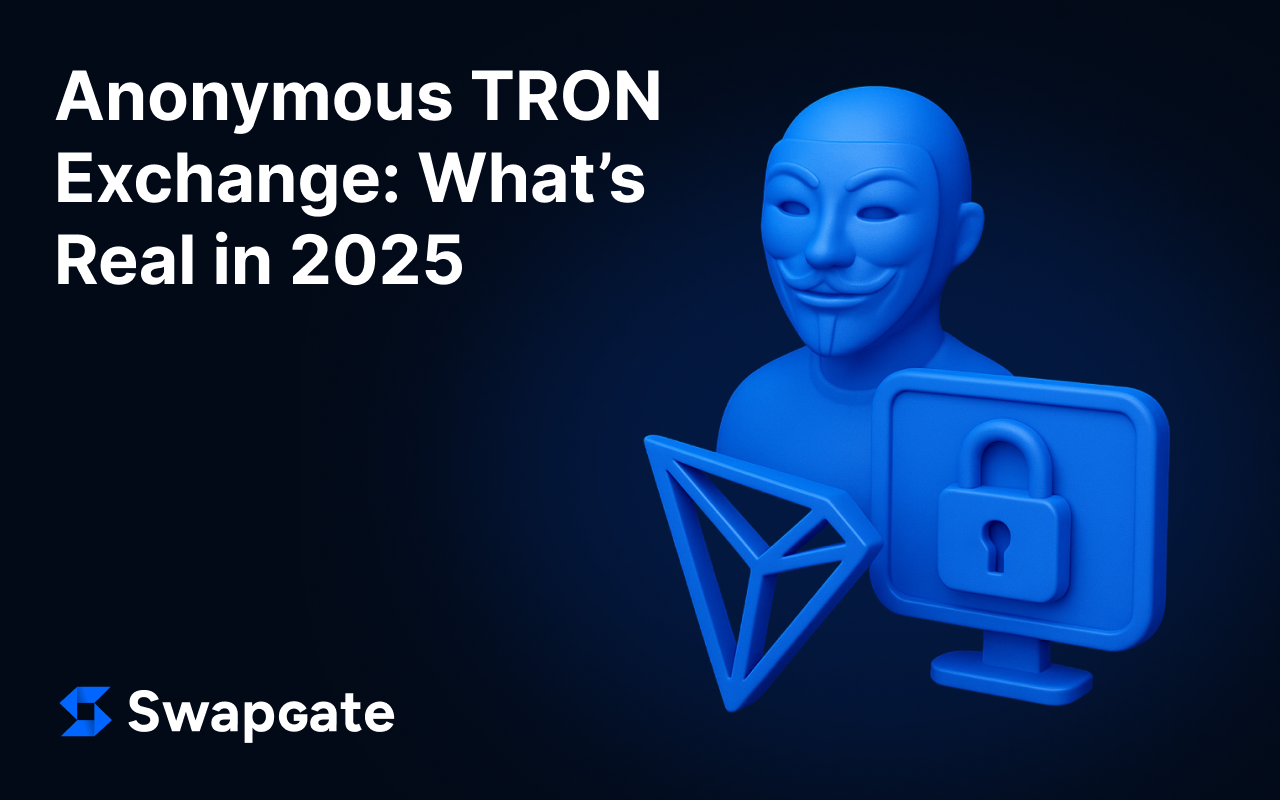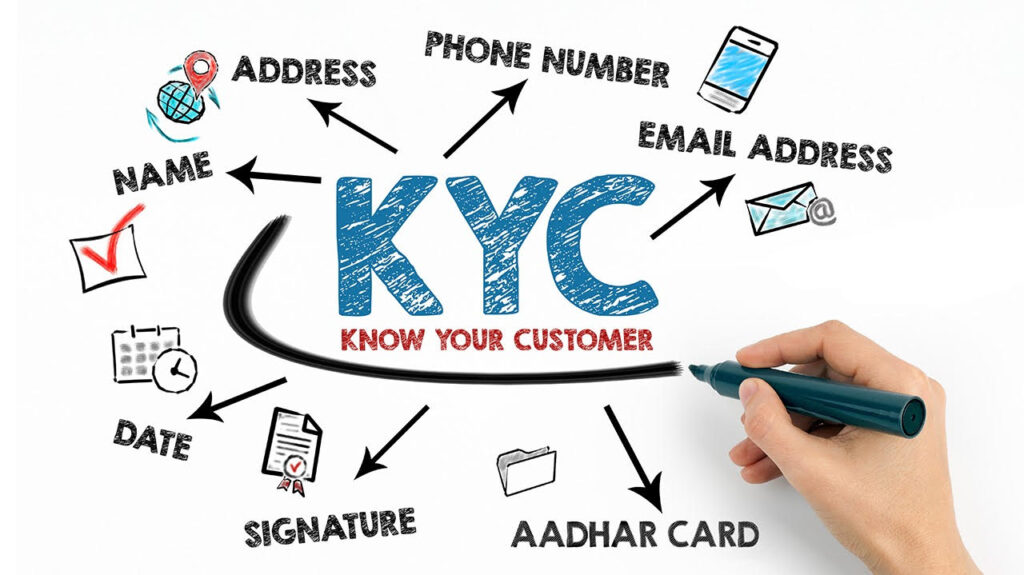
Today, TRX has firmly established itself at $0.30 with a market capitalization of $28.5 billion, and we have achieved this high figure thanks to the project team’s commitment to decentralizing content and games. Traders are actively discussing the idea of an anonymous TRON exchange, dreaming of trading TRX without the hassle of identity verification.
But is exchange TRX without verification a real option or just a crypto fairy tale? With regulators tightening the screws and privacy concerns on the rise, traders want to know if they can sell TRX anonymously without risking their funds. This guide digs into the truth behind TRON no KYC platforms, weighs the pros and cons, and shows how to navigate this space safely – especially for those eyeing a no KYC crypto exchange in 2025.
What Is KYC and Why It’s Required
KYC, or Know Your Customer, is a process where exchanges verify a trader’s identity using documents like passports, driver’s licenses, or utility bills. It’s a global standard pushed by regulators to stop money laundering, terrorist financing, and tax evasion. For traders, this means handing over personal details – name, address, even a selfie – to platforms like Binance or Kraken before they can move significant TRX.

Why the fuss? Governments argue KYC protects the financial system. In 2024, crypto fraud hit record highs, with $14 billion lost to scams, per industry estimates, prompting stricter rules. Exchanges in the U.S. and EU use KYC data to issue tax forms like the 1099, ensuring traders report gains. But for some, it feels like a privacy invasion, clashing with crypto’s decentralized roots. This tension fuels the hunt for TRON without passport options, where traders can exchange TRX without verification without jumping through hoops.
Can You Really Exchange TRX Anonymously?
The short answer: yes, but it’s tricky. Anonymous TRON exchange platforms exist, offering ways to swap TRX without ID or sell TRX anonymously, though they come with caveats. Let’s break it down.
Anonymous Platforms
Several no KYC crypto exchange options cater to privacy seekers in 2025. Decentralized exchanges (DEXs) like PancakeSwap and Uniswap let traders swap TRX using wallets like MetaMask, skipping ID checks entirely. Centralized exchanges (CEXs) like MEXC and CoinEx offer no-KYC tiers, allowing small withdrawals (e.g., $10,000 daily on CoinEx) before requiring verification. P2P platforms, such as Hodl Hodl, connect traders directly, using escrow to avoid middlemen and KYC.
Then there’s SwapGate (mentioned under Anonymous Platforms), a standout for TRON no KYC fans. It’s a non-custodial platform with fast swaps, no account setup, and support for 500+ assets, including TRX. Traders love its low fees (0.1% per swap) and global access, making it a go-to for exchange TRX without verification.
Legal Risks
Trading on a TRON without a passport platform isn’t illegal, but it’s a gray area. Blockchain transactions are pseudonymous – your wallet address is public, not your name – yet regulators can trace funds if linked to you via other means (e.g., a hacked email). The IRS cracked down in 2024, using Chainalysis to match wallets to identities, and tax evasion penalties hit $100,000 fines or five years in prison. In the EU, AML rules demand KYC for amounts over €1,000, so exchange TRX anonymously moves above that could draw scrutiny. Traders must weigh privacy against potential legal headaches.
Pros and Cons of No-KYC Exchanges
No KYC crypto exchange platforms have their appeal, but they’re not a one-size-fits-all solution. Here’s what traders face.
Pros
- Privacy: No need to share personal data, keeping identities off the grid.
- Speed: Instant access without waiting for ID approval – perfect for quick swap TRX without ID moves.
- Global Reach: Available in restricted regions where KYC-heavy exchanges are banned.
- Decentralization: Aligns with crypto’s original anonymity ethos, especially for TRX’s content ecosystem.
Cons
- Security Risks: Less regulation means higher scam potential – $1.5 billion was lost to no-KYC hacks in 2024.
- Withdrawal Limits: Many platforms cap unverified withdrawals (e.g., $10,000 on MEXC) until KYC is added.
- No Recourse: If funds vanish due to a platform crash, traders can’t rely on regulators for help.
- Tax Trouble: Anonymity doesn’t exempt traders from reporting gains, risking audits if records are sloppy.
Table: No-KYC Exchange Snapshot
| Platform | Type | Withdrawal Limit (No KYC) | Fees | Pros | Cons |
| PancakeSwap | DEX | Unlimited (wallet-based) | 0.25% | Non-custodial, fast | No fiat |
| MEXC | CEX | $10,000/day | 0.2% | Wide asset range | KYC for large trades |
| Hodl Hodl | P2P | Varies by trade | 0–1% | Escrow security | Slow matching |
| CoinEx | CEX | $10,000/day | 0.1% | User-friendly | Caps apply |
This balance sheet shows traders must pick based on their anonymous TRON exchange needs – privacy versus practicality.
How to Do It Safely
Trading on a TRON no KYC platform can work, but safety is key. Traders should follow these steps to exchange TRX without verification without tripping into traps.
- Pick a Reputable Platform: Stick to known names like PancakeSwap or MEXC with active user bases. Avoid sketchy sites promising unlimited anonymity – scams thrive here.
- Use a New Wallet: Create a fresh TRX wallet (e.g., TronLink) for no-KYC trades. Never reuse addresses linked to KYC exchanges to avoid traceability.
- Enable Security: Turn on 2FA with an authenticator app and store seed phrases offline (e.g., on paper in a safe). A lost phrase means lost TRX.
- Start Small: Test with a tiny amount – say, 100 TRX – to check platform reliability before going big.
- Verify Transactions: Use TronScan to track TRX movements and ensure swaps complete. Double-check wallet addresses to dodge phishing.
- Keep Records: Log all trades for tax purposes. The IRS doesn’t care about anonymity – unreported gains can trigger audits.
- Use a VPN on public Wi-Fi to mask your IP.
- Avoid sharing wallet details on forums or chats.
- Update wallet software to patch security flaws.
- Watch for fake platforms mimicking legit ones.
- Back up seed phrases in multiple secure locations.
These steps help traders sell TRX anonymously while minimizing risks on a no KYC crypto exchange.
Final Thoughts
The dream of an anonymous TRON exchange isn’t a myth in 2025, but it’s not a free-for-all either. Traders can swap TRX without ID or exchange TRX without verification using DEXs, CEXs with no-KYC tiers like MEXC, or P2P options like Hodl Hodl. For those seeking an alternative, SwapGate offers a slick way to exchange TRON without passport, with its non-custodial setup, low fees, and global reach – perfect for privacy buffs. Yet, the trade-off is real: limited withdrawals, security gaps, and legal gray zones. With TRX at $0.167 and its ecosystem growing, the allure of sell TRX anonymously is strong, but so are the risks. Traders must balance anonymity with safety, using fresh wallets, strong security, and meticulous records to stay compliant.
Disclaimer: Be careful and watch out for scammers. Choose verified exchange services to protect your funds and ensure a positive experience.